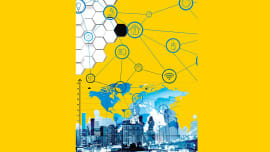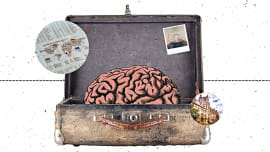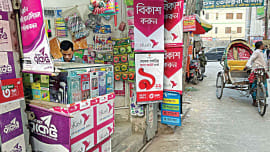Digital strides we made in 2020
12 February 2021, 18:10 PM
Going Digital
Editor’s Note
12 February 2021, 18:00 PM
30th Anniversary Supplements
Digital transformation in the health sector: Making healthcare more inclusive and accessible
12 February 2021, 18:00 PM
Health
How Bangladesh can reverse brain drain
12 February 2021, 18:00 PM
Next Step
Angel investing 101: Doing it right in Bangladesh
12 February 2021, 18:00 PM
Next Step
Travel has finally entered the digital era, thanks to the pandemic
12 February 2021, 18:00 PM
TOGGLE
A brief look at the auto industry in Bangladesh
12 February 2021, 18:00 PM
30th Anniversary Supplements
Digitisation and education: Lessons learned during pandemic
12 February 2021, 18:00 PM
30th Anniversary Supplements
Digital transformation unfolding a new chapter in fintech
12 February 2021, 18:00 PM
30th Anniversary Supplements
E-Commerce of Bangladesh in the next five years: What to expect?
12 February 2021, 18:00 PM
TOGGLE
Digital strides we made in 2020
The government of Bangladesh launched e-passports at the beginning of 2020, becoming the first country in South Asia to launch e-passports. The biographical and biometric information of passport holders will remain safe in the e-passport chip.
12 February 2021, 18:10 PM
Editor’s Note
If anything, the pandemic ridden past year has taught us to rethink our strategies and approaches in almost every sector. As we were forced to retreat into the safety of our homes; the idea of adopting the ‘new normal’ posed a unique challenge for a nation still grasping the rudimentary concepts of digitisation.
12 February 2021, 18:00 PM
Digital transformation in the health sector: Making healthcare more inclusive and accessible
The ongoing Covid-19 pandemic has not only exposed the fragility of our healthcare system but has also made policymakers around the world rethink the healthcare systems of their respective countries.
12 February 2021, 18:00 PM
How Bangladesh can reverse brain drain
"Brain drain" is defined as the emigration of highly trained or qualified people from a particular country to abroad. It is a perpetually damaging problem that mostly affects underdeveloped nations. And given Bangladesh falls into that category, it is no surprise that we are facing a rapidly worsening case of brain drain ourselves as time passes by.
12 February 2021, 18:00 PM
Angel investing 101: Doing it right in Bangladesh
As interest in the Bangladeshi startup ecosystem has grown, so has the responsibility of angel investors and other early stage stakeholders to properly assist founders and startups in preparing for their next stages of growth and funding.
12 February 2021, 18:00 PM
Travel has finally entered the digital era, thanks to the pandemic
To many, travel was a luxury. And while it remains so for some, the pandemic made us realise that travel is also a necessity. The good thing is, we don't have to wait for 5 years to see the future of travel in Bangladesh, because it has already started happening. The future, for better or worse, is now.
12 February 2021, 18:00 PM
A brief look at the auto industry in Bangladesh
The rapid growth of our economy and people’s purchasing power has seen a rise in demand for personal transport. People are buying more cars and motorcycles than ever before, being able to pay their way through the duty inflated prices.
12 February 2021, 18:00 PM
Digitisation and education: Lessons learned during pandemic
Earlier this last year when the first wave of Covid-19 swept the country and plunged the nation into an uncertain lockdown, it painted a particular grim picture for the education sector of the country.
12 February 2021, 18:00 PM
Digital transformation unfolding a new chapter in fintech
Transforming financial technologies through digital innovations is enabling and empowering citizens and companies to do more, which played a unique role during the pandemic.
12 February 2021, 18:00 PM
E-Commerce of Bangladesh in the next five years: What to expect?
E-commerce has been trendy in the business scene all over the world for quite some time now, and Bangladesh has been of no exception.
12 February 2021, 18:00 PM
Fintech: During and beyond Covid-19
If you still think the only way to pay your bills is to walk to your bank, you’re missing out on a key essence of being a 21st-century citizen.
12 February 2021, 18:00 PM
Current trends in digital learning technology
The concept of learning has taken on new meanings corresponding to the advent of technology. Education has a new countenance and the methods of educating oneself have undergone revolutionary changes.
12 February 2021, 18:00 PM
Tech megatrends in the last decade we need to look out for
Klaus Schwab, founder and executive chairman of World Economic Forum asserts that we’re in the middle of a fourth industrial revolution and it will become known as the digital revolution.
12 February 2021, 18:00 PM






















